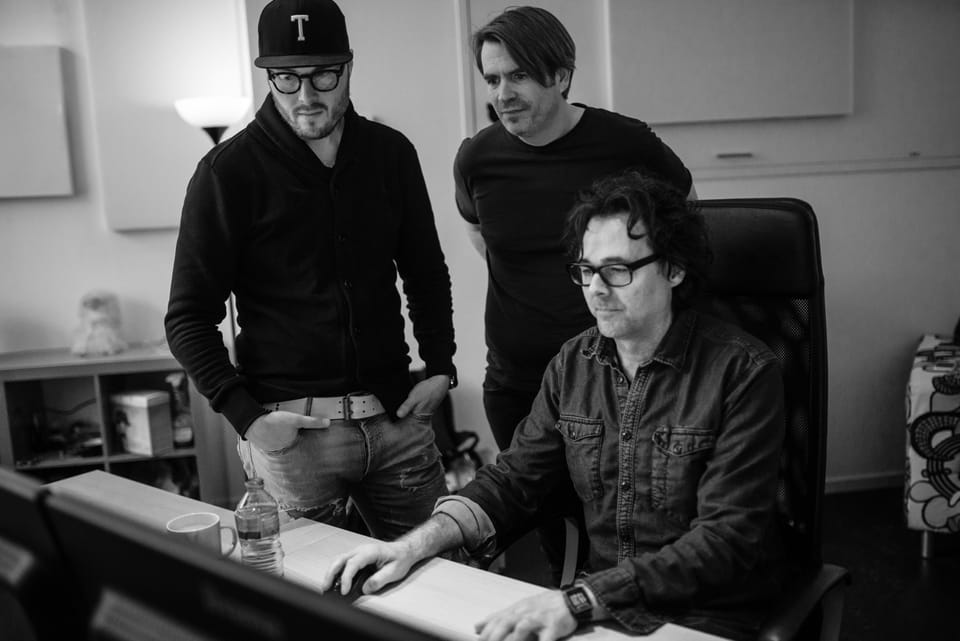How to Submit a Demo to a Record Label: A Techno Producer's Guide

Navigating the music industry's complexities is a defining challenge for techno producers eager to share their beats with the world. A pivotal moment in this journey is submitting a demo to a record label. This guide outlines a strategy for submitting your demo and ensuring it resonates with the label's A&R team.
The Eight Golden Rules:
1. Research Potential Labels
Kickstart your path by exploring LabelsBase.net and Beatport to identify labels that resonate with your sound. Beatport's extensive catalog offers insight into the label's genre preferences and current artists, ensuring your music aligns with their style. Make a list of five labels that resonate. Follow them on social media. Please familiarize yourself with their unique tone of voice.
2. Submission Guidelines Are Key
Adherence to a label's submission protocol cannot be overstated. Look for guidelines on their website, LabelsBase, or Beatport profile, and tailor your demo submission accordingly. Some labels use LabelRadar, and if your dream label is using that platform, I recommend investing in a Pro account to show them that you're serious about getting heard.
3. Crafting Your Email
Your initial contact should be concise, professional, and personalized. Introduce yourself, highlight your musical journey, and articulate why your sound matches the label. Include only one link: to a private playlist with your demos. Importantly, attach your Electronic Press Kit (EPK) to the email. This document should encapsulate your music career, achievements, and artistic identity, providing the label with a comprehensive understanding of who you are as an artist.
4. Demo Preparation
Ensure your tracks are of the highest production quality and showcase your unique sound. Send a minimum of three finished and mastered tracks with proper names. Upload them to a private SoundCloud playlist, making them downloadable. Your SoundCloud profile should testify to your artistry, with links to your social media and streaming platforms and an engaging bio.
5. Follow Up Respectfully
A thoughtful follow-up after a few weeks demonstrates your commitment and interest. Maintain professionalism and patience, as labels often have a backlog of demos to review.
6. Enhance Your Network and Online Presence
Building a solid online presence with a clear identity as an artist and engaging with the community on social media and platforms like Beatport can significantly increase your visibility to labels.
7. Embrace Feedback
Any feedback should be seen as a valuable tool for growth. Critiques offer insights into how you can refine your sound or approach, so stay receptive and resilient.
8. What Not To Do
Please avoid common errors—they signal to a label that a producer may be unprofessional, potentially leading to challenges in future collaboration.
Don’t Send Unfinished Tracks: Avoid submitting incomplete or poorly produced demos.
Don't Send Public Tracks: Avoid sending tracks that are already publicly available, as labels prefer exclusive or unreleased material to gauge unique potential.
Don’t Ignore Submission Guidelines: Follow the label's specific requirements for demo submissions.
Don’t Spam: Refrain from resending your demo multiple times or sending it to multiple contacts at the label indiscriminately.
Don’t Make It Impersonal: Avoid generic pitches; personalize your communication to match the label's focus and style.
Don’t Use Bulk Email: Never send your demo via bulk email with all recipient addresses visible in the "To" field or via the "Bcc" field.
Ignoring these unwritten submission rules makes you appear unprofessional and unprepared, wasting the label's time and potentially damaging your credibility. This is especially true since the label A&Rs must listen to hundreds of tracks and value direct and professionally presented submissions.
Leave Your Mark On The Techno Scene
The journey to getting your demo heard by a record label is intricate, requiring a blend of strategic preparation, quality music production, and effective communication. By leveraging platforms like LabelsBase.net and Beatport for research, presenting a polished EPK, and meticulously following submission guidelines, you position yourself for success in the techno-music industry.
Step forward into your music career with confidence. Share this guide with fellow techno producers, and let's elevate each other's work. Together, we can make an indelible mark on the techno scene.
Above all, I enjoy producing techno. Remember that you can always release your tracks on your SoundCloud and build an audience from that!
Sebastiaan

Member discussion